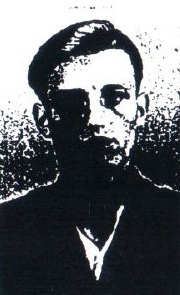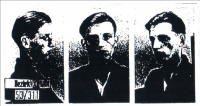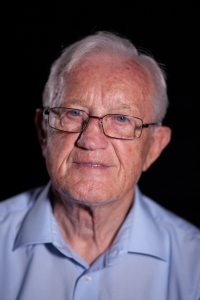Wars are the work of the devil

Download image
Dieter Groffig was born on 2 September 1933 in the Silesian town of Reichenbach, which is currently within the territory of Poland and was renamed Dzerzionów after the war. His father served in the Wehrmacht and fell in 1944 in Lithuania. When the Red Army reached as far as Silesian Wrocław in February 1945, the women and children of Reichenbach were evacuated to Jihlava and three months later transferred to Slaný. The end of the war caught the family in Beřovice near Slaný, where they witnessed the executions of German soldiers and their mother had to dig their graves. On the train journey back to Silesia, Soviet soldiers raped Dieter’s fifteen-year-old sister. In Reichenbach, the Groffig family spent a further year and a half in utmost poverty, the town was already under Polish administration. In the autumn of 1946, the Groffig family were expelled, escorted by Polish gunmen, and with ten kilograms of property per person they travelled by cattle car to the Soviet occupation zone of Germany. After staying at various refugee camps, they were housed in stables in the town of Riesa, where they lived until 1953. Under the influence of these wartime events, the mother and her children decided to join the Jehovah’s Witnesses. This had been forbidden in Communist East Germany from 1950. Dieter repeatedly smuggled religious print materials from West Berlin, until an informant turned him in and he was arrested and convicted in 1953. He spent seven and a half years in East German prisons, until being released during the amnesty at the end of 1960. A few months later, immediately before the erection of the Berlin wall, he emigrated through West Berlin to the Federal Republic, where he lives to this day.



